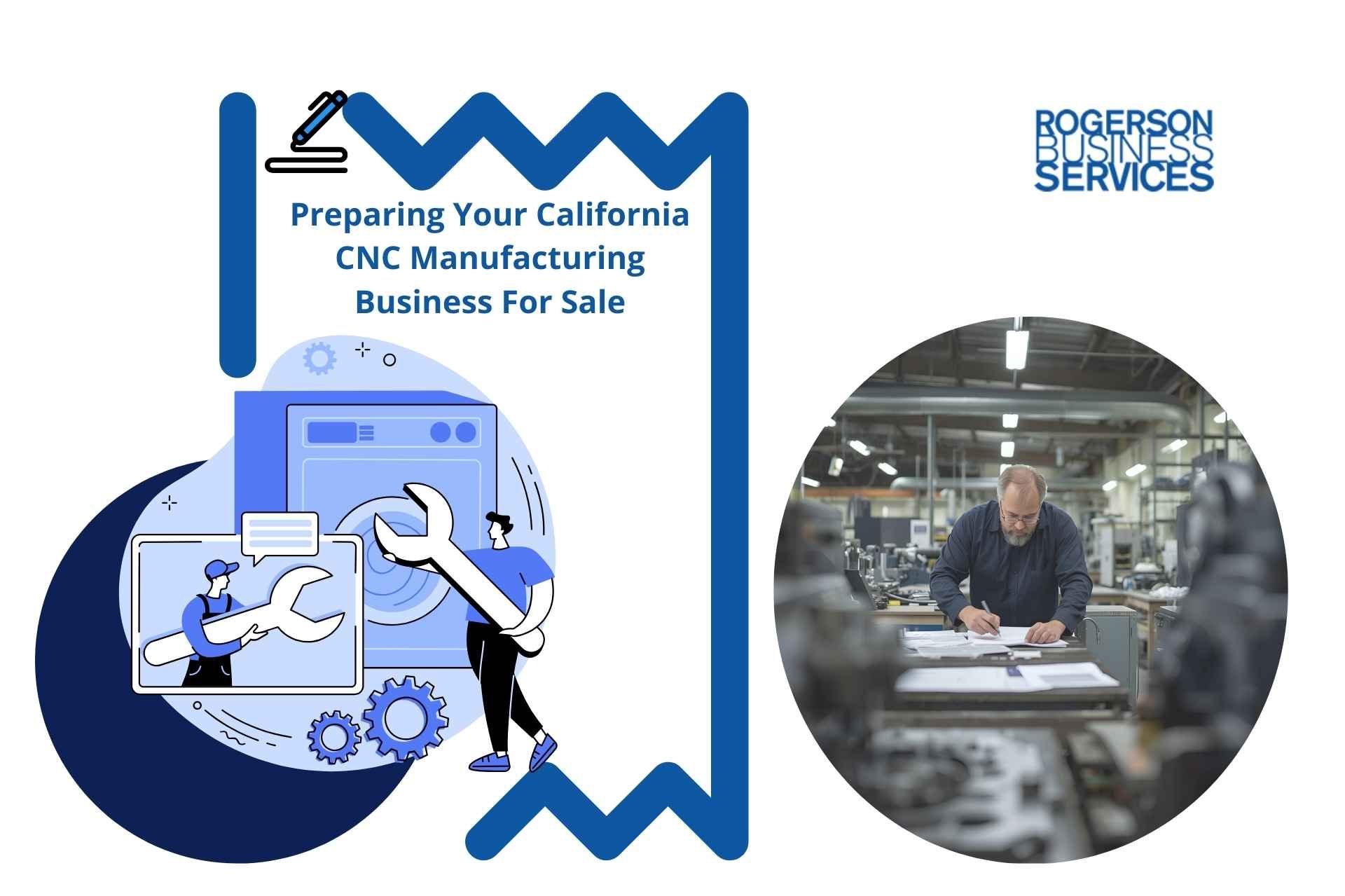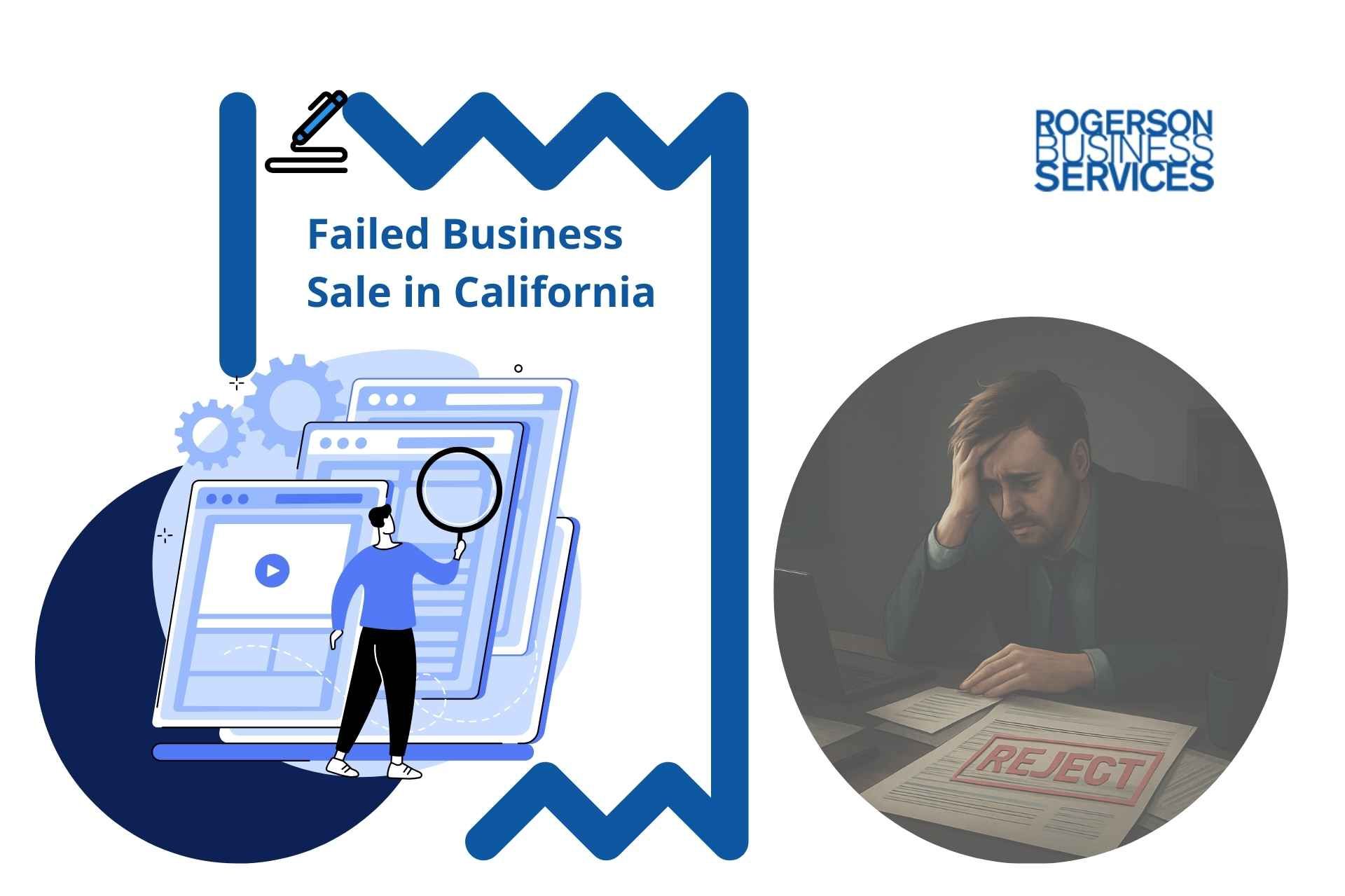The Ultimate Guide to Help Exit a Telecom Company
Considering an exit strategy from your lower middle-market telecom company in California can be overwhelming. Without a proper, well prepared, exit plan, and an intermediary or professional business M&A Advisor to facilitate the process, there is no way to guarantee that you made the right decision.
Get The Guide
M&A Guide
Increase Your Chance Of Success!
Guide to Help Exit a Telecom Company
Everything you need, all in this exit strategy simple guide
Exit Strategy for a Telecom Company
As a Baby Boomer, you are a part of a large portion of the United States - about a 72 million-member community, in fact.
The individuals that make up this reputable generation showcase some similar characteristics - independence, strong work ethic, competitiveness, and goal orientation - which might help us understand why so many are business owners.
In the coming years, many of you will be reaching ages of 60, 70, and even 80. With retirement looming, it’s an excellent time to consider your business owner's exit strategy. If you’re wondering how to sell your business or how to prepare an exit strategy, you may consider working with an M&A advisor.
Middle market M&A Brokers can help you put your telecom business for sale and work out the critical success factors in the telecommunication industry.

Top Reasons to Consider an Exit Strategy
If you are thinking, “I want to sell my business,” then you should start considering your business exit strategy. A useful exit strategy framework will help prepare you for the transition of ownership or the closure of your business in the best possible way.
Lower middle-market M&A Brokers can explain to you the various exit strategies in detail as well as reasons they’re essential and helpful when putting a million-dollar business for sale.
Support a Good Financial Strategy
Having a strategic exit plan is the foundation of a sound financial strategy. A well-planned exit strategy allows you to work with a wide range of investors and potential buyers rather than to narrow your prospects down to one single lane.
The quality of your exit strategy can also help to attract more potential investors. When an investor sees a high-quality exit strategy in place, it increases the likelihood of their investment.
Overall, a good exit plan can ultimately lead to the best possible financial outcome for you and your business.
Prepare for Unexpected Offers
Not everyone who sells their business was planning on doing so. Successful telecommunications companies often receive offers that are unexpected. Even if your business isn’t on the market, there is a chance you might catch the interest of an investor.
If that situation comes up, you are going to want to have the answers to some common questions, such as:
- How do I sell my business?
- How much can I sell my business for?
- How do I sell my business privately?
- What are my first steps?
Having a set exit strategy, or even multiple exit strategies, can make sure that you have these answers and more on hand should an offer arrive unexpectedly. You will always be prepared to sell in the telecommunications industry.
Tax Implications
During the process of constructing an M&A exit strategy, you and your broker can comb through various tax costs and implications of a transfer of ownership. In doing so, you can explore alternatives and select the strategy that incurs the lowest costs.
Many individuals who sell their business wonder: If I sell my business, how much tax will I pay?
This common question is one that some solid business exit strategy planning can answer. Having your plan in place will eliminate any further need to worry about tax implications.
Accurate Valuation
In formulating an exit strategy, a business owner can come up with the answers to all of the potential questions a buyer might have. In doing so, he or she can evaluate both the strengths and the weaknesses of their company.
These strengths and weaknesses play a massive role in determining the value of a business. Business valuation is critical to a successful business sale. Not only will a good valuation ensure an owner gets their owed profits, but it also keeps the sale fair for the buyer.
A low valuation can cause a business owner to lose money in a deal. A valuation that is too high, on the other hand, can turn potential investors off from a deal. With a good exit strategy, a business can determine its valuation and achieve best-case-scenario results.
Crisis Planning
Like an unexpected offer from a buyer, life can throw various events and crises our way that may interrupt business operations at any point. Tragedies such as a death in the family or a severe illness may impact an owner’s ability to properly run the company.
In these instances, it is ideal to have an exit plan in place so that an owner can make quick but smart decisions concerning the next steps for their company. Whether the goal is to pass the business to a family member or a trusted partner or sell to an investor, an exit strategy outlines your steps for you.
Economic Downfall
Every business depends on the rise and fall of the economy. Periods of growth and decline will often hit businesses, but more serious recessions can cause a company to fall permanently.
Having an exit strategy can address issues such as a poor economy by leveraging profits, customer experience, organization, and more to increase their valuation. Any business that has potential for growth should have a solid exit strategy should they unexpectedly face times of economic decline and need to sell.
Open Up Options
Perhaps one of the most common reasons to implement an exit strategy is to increase your options when it does come time to relinquish the business. A well-rounded exit plan takes all possibilities into consideration, allowing you to feel ready for any unforeseen developments.
When you are more prepared to face anything that comes your way during the selling process, you can more readily look into and accept different options. This can help maximize your profit and expand your search for buyers.
How to Sell a Business - Telecom Companies
Whether you have a fiber-optic business for sale or a data cabling business for sale, putting a telecommunications company for sale can be tricky. Lower middle-market M&A brokers can show you how to sell a business, but learning a little bit about the process can certainly move things along.
Selling any kind of business follows essentially the same outline. If you are thinking, “I want to sell my business, where do I start?'' the list below is an excellent beginning point.
Using the steps below, you can better organize the actions you need to take and the documents needed to sell a business.
- Find a reputable M&A broker: Lower middle-market M&A Brokers can provide you with answers to all of your questions, like how to calculate the value of a business for sale. They are also experts in the M&A financial due diligence checklist for selling a business.
- Value my business: There are many different methods of business valuation. Middle market M&A Brokers can assist you in identifying the best approach.
- Prepare all my financials: In order to buy/sell a business, you must have an adjusted profit and loss statement to present to buyers.
- Develop an executive summary of my business: Your executive summary will outline exactly what kind of business you have, what your financials look like, and other frequently asked questions.
- Market my business: Putting middle-market companies for sale entails a lot of marketing. M&A advisors know how to sell a business quickly and can even sell your business online using their marketing expertise.
- Buyer analysis & fielding offers: Once mid-market businesses for sale hit the market, the proposals will start to come in. M&A advisors will perform buyer analysis and field offers, negotiating on your behalf.
- Buyer Due Diligence: Every seller must allow at least 30 days for buyers to complete their buying and selling a business checklist. This includes verifying financials, validating information, and any other due diligence they’re entitled to perform.
- Close my deal: At the end of the line, the only thing left to do is finalize the deal, sign the final contracts, and begin the transition process.
Preparing to Sell a Telecom Company
When you are preparing to sell a telecom company, there are several questions that you need to ask and answer:
- Does selling my business make economic sense right now?
- Does the present value of all future dividends outweigh the price I’ll receive after paying taxes, advisors, etc.?
- What are my plans for the profits I receive from selling my business?
- Are all owners and partners on board with selling the company?
These questions can help you determine whether or not it’s the right time to sell your business. They can also help identify any weak points in the potential selling process, which you may be able to rectify.
Types of Telecom Companies
There are several different telecommunications companies that fall under the umbrella of the telecommunications industry. Knowing where your company lies in these categories can help you better formulate telecom acquisitions and telecom mergers in the market.
A telecommunications services provider offers communications through voice and data spanning a service area. If your company falls under this topic, you are a telecom company and can therefore begin exploring telecom M&A trends.
Satellite Telecommunications
A satellite telecommunications company is one that provides telecom services through satellite systems. Many of these companies work mainly to facilitate direct-to-home satellite TV services. These types of telecommunications companies in California are widely used and very popular, so it’s not hard to find good telecom M&A deals.
These types of companies might fall under satellite telecommunications:
- Earth Stations
- Long-Distance Telephone Carriers
- Resellers
Wireless Telecommunications
Recent tech acquisitions and large deals often feature wireless telecommunications, such as Dell purchasing EMC. Wireless telecommunications companies operate and maintain communications using networks rather than satellites. They provide common services such as:
- Cellular Phone Services
- Paging Services
- Wireless Internet
- Wireless Telephone
All of the above excludes any similar services that involve satellites.
Wired Telecommunications
Wired telecommunications services are easy to understand: they provide the transmission of voice, data, sound, video, and text through wired networks. While wireless is all the rage these days, wired companies still hold a strong position in the industry.
Some of the best examples of wired telecommunications services include:
- Broadband Internet - Cable, DSL
- Cable Television
- Local Telephone Carriers
- Long-Distance Telephone Carriers
- VoIP Services
If you have a cable company for sale, you could fall under the category of wired telecommunications. Likewise, a fiber splicing company for sale also uses wired telecom.
Other Major Segments
The telecom industry includes a wide range of other major segments, one of which your lower middle-market private equity will fall under. For example, a cabling business for sale would certainly classify as telecom.
These are some of the other major segments under the three categories we talked about above:
- Wireless Communications
- Communications Equipment
- Processing Systems and Products
- Long-Distance Carriers
- Domestic Telecom Services
- Foreign Telecom Services
- Diversified Communication Services
If you want to know how to value a telecom company, you should research M&A Brokers who have the expertise it takes to handle lower middle market companies for sale.
Due Diligence Checklist
When selling a telecom company, your middle-market M&A Brokers will help you make sure you have everything you need in place for due diligence. The due diligence checklist is a process that a buyer will go through to analyze your company before agreeing to a deal.
So, when preparing to sell, there are a few questions you should ask yourself:
- Does the business have all of its key documents needed to sell a business contract, including information about operations ready and accessible?
- Does the business have a quality data system in place to cover areas of financials, payroll, invoicing, customer lists, etc.?
- What are the critical add-backs and adjustments to the income statement to correctly calculate the adjusted EBITDA of the tech company?
- What are some of the possible tax consequences of selling the company under various pricing scenarios?
While most due diligence checklists follow a fundamental and general format, some may differ based on industries. A buyer’s due diligence checklist may also be used for:
- Preparing an audited financial statement
- Public/private financing
- Major bank financing
- Joint Venture
- Initial Public Offering
- Risk Management
The due diligence process is critical to the success of your sale because your potential buyer will be checking to ensure they haven’t missed anything before a purchase. If you have everything organized and settled beforehand, it can lessen the amount of time that the process will take overall.
Plus, having all of your documents and information ready on demand can help make your buyer feel secure and confident in their decision to acquire.
Business Valuation
What is it? Why do I need one if I'm planning to exit a business? What is the business worth?
Business Valuation: What’s My Company Worth?
Every business owner has at least one common question on their mind at all times: how much is my business worth? The process demonstrates how to calculate the value of a business for sale is crucial to the overall success of the business owner.
After all, every business owner wants to make sure they are getting the most profit possible out of their sale.
Even if you are not on the market to sell anytime soon, it is still a good idea to have a business valuation done. In doing so, you can identify areas of weakness and take steps towards increasing your value. Waiting until it’s time to sell may not leave you with enough time to make any improvements.
Factors Impacting Business Valuation
There are several factors that will impact your business valuation. By splitting them into categories, you can effectively coordinate strategies alongside your M&A broker to maximize your company’s value.
Past Financial Performance
When an investor shows interest in your telecom company for sale, they are going to dig deep to ensure they are spending their money well. Your historical financial performance will let potential buyers know how your business did financially over the last few years.
In analyzing the past three to five years, an investor can take note of whether your profits trended upwards or downwards. They can also see what your expenses were and how they compare to your revenues.
Investors noting revenues trending down, coupled with high expenses, may not view your business as a profitable or intelligent investment for them. Things like P&L statements, balance sheets, and tax returns play a significant role in the value of your business.
Growth Potential
Along with taking a stroll through your past financials, potential buyers also want a glimpse into the future of your business. Does your company showcase a strong potential for growth? If so, your valuation may increase.
An M&A advisor can help you identify key business and industry trends while tracking your revenues and organizing projections. So long as there’s strong reasoning to back up why and how your business will grow, you will be able to put a higher value on it.
However, lack of growth potential can do the opposite and deter buyers from investing in your business.
In some instances, an experienced business buyer may also be able to see certain growth strategies that the current owner is not implementing. In this case, they may try to buy the business at a lower cost so they can turn it around with their ideas.
Owner Dependence
Strong leaders are certainly people to be admired, but ownership that is too strong can also have a negative impact when it comes to selling a middle-market telecom business.
Perhaps one of the only situations where owner dependence is a good thing is during growth through acquisition. When growth through mergers and acquisition happens, businesses will often hire the current owner after the sale. In this case, a smart owner is beneficial to the company.
In other cases, a company that is far too dependent on its owner is a risk to an investor. An investor needs to know that the business can still be successful once the current owner steps aside and new ownership is put into power.
If a company is running very well with little dependence on ownership, then that can increase the value of the operations.
Top Client Dependence
Just like a company should not depend on its owner for productive operations, it also should not depend on a small percentage of top client business.
If a large percentage of your revenues are coming from just a few top customers or clients, that’s a red flag for business buyers and investors. With the unpredictable nature of the business world, buyers need to know that losing one or two clients isn’t going to crush the business.
If a significant percentage of your business’s profits are coming from a small number of customers, your business valuation is going to drop. This is an issue that owners should know about early on so that they have plenty of time to eliminate the problem before selling.
Customer Base
If having a large percentage of business focused on a small number of clients is a bad thing, then what’s the alternative? It’s a large, diverse customer base that accounts for varying percentages of the business’s revenue.
Size is a good place to start. Imagine how risky it would feel to only have two or three customers. If you were to lose just one, you would lose one-third of your profits and would likely shut down for good.
However, several hundred or thousands of customers lessens the risk. Businesses gain and lose customers all the time. While gaining a big-spender is always a good thing, losing one can really be detrimental to a company. The more customers you have, the smaller the hit will be if you lose one.
Likewise, customer diversity can also help increase the value of your business. Investors do not want a company that’s stuck in one lane. If your company’s customer base only includes white males ages 30-50, then you might have put yourself in a tiny niche market that doesn’t show much room for expansion.
A more diverse customer base tells an investor that there’s basically no limit to who your product or services can reach.
Strength of Management Team
When a new owner acquires a business, they often don’t get to take the old owner along for the ride. What they do get in the deal is the management team and personnel currently working for the business.
An easy way to increase your valuation is to have a solid team under you. A complete, productive, and efficient management team leaves a new owner with little to do in the way of processes and operations.
Investors will feel more comfortable giving you their hard-earned cash if they know they’re walking into a business filled with talented professionals who know the systems and have innate leadership capabilities.
Some key management areas to focus on to increase your valuation might include sales, marketing, finance, and operations. The less clean-up work an investor feels like they have to do in your company, the more money they will be willing to spend. A good management team minimizes risk as well as any necessary overhaul activities.
Learn how to plan an exit for your Telecom company
Sell-Side M&A
Four step process to market your California lower middle market business for sale
01 Exit Plan - business valuation
Your potential buyers can come from many areas. Employees, individual and group investors, Private Equity Groups, and even competitors who may have an interest in purchasing your business. If a competitor is interested, you don't want to reveal too much information about your business, especially anything that could hurt your business if the deal falls through.
Once you decide to sell, get your business ready, and get help from a trusted and accredited California M&A Advisor.
An M&A Advisor will vet potential buyers to make sure they are qualified and are serious about purchasing your business.
A California Licensed M&A Advisor knows the ins and outs of selling a California business and can help you get your business in shape to get you the best deal.
02 Buyer Analysis
One of the first things your M&A Advisor will do, is help you to create an exit plan. An M&A Advisor knows exactly how to plan an M&A exit strategy. In fact, you might get a M&A Advisor to help you with an exit plan long before you're ready to sell your California company.
An M&A Advisor is knowledgeable about how to calculate the value of a business to sell and will aim to get the highest value for your business. Once everything is ready to go, they'll list your business for sale. An M&A Advisor will be an expert at listing a California businesses for sale.
After your business is listed, the M&A Advisor will handle all the marketing of your business to promote deal origination and get you in front of potential buyers. They'll also set a buyer list and work with you to figure out who to go after for the best value.
03 Deal Origination - marketing
An M&A Advisor will then work to get you as many qualified and motivated buyers of your business as possible.
They will market your business through the proper channels, including social selling and targeting and generating interest. They'll vet and follow up with interested buyers whether off-market or publicly listed.
Once the offers come in, your M&A Advisor will evaluate all offers and conduct market offer analysis to make sure you're getting the best deal.
04 Negotiation & Closing
Buyer Due Diligence
Once a buyer is performing their own due diligence, the M&A Advisor will help you navigate the process to make sure everything is running smoothly. They'll negotiate a Letter Of Intent between you and the buyer to lay out the proposed aspects of the deal. Your M&A Advisor will also help you gather all of the necessary paperwork discussed above. If the buyer asks for additional documentation, your M&A Advisor can help guide you.
As a buyer is going through the due diligence process, they will be on the lookout for red flags about your business. An experienced M&A Advisor is knowledgeable about these warning signs and can help you prevent them. Red flags may include refusing to disclose why you're selling, not allowing time to conduct due diligence, refusal to introduce the buyer to employees, suppliers, landlords, and more.
Definitive Purchase Agreement
The M&A Advisor will oversee the Definitive Purchase Agreement with the help of the transaction attorneys to make sure both parties are happy with the terms. A Definitive Purchase Agreement protects both you and the buyer as it will clearly state exactly what is and is not being sold. It can also protect the buyer from certain liabilities. A Definitive Purchase Agreement will also help you deal with the legal complexities of selling a California lower middle market business.
Once the Definitive Purchase Agreement is finalized, the M&A Advisor will help with any final items that need to be done as part of the closing process including working with a California Licensed Escrow company.
Closing - Finalize the Transaction and Close the Deal
Finally, your M&A Advisor will help prepare the close of your transaction. Once the closing is complete, they'll assist with overseeing the transition of the business change of ownership.

The Role of Your M&A Broker
M&A brokers are incredibly impactful professionals who can truly drive your selling process. They come highly recommended, with tons of experience, knowledge, and strategies under their belts.
But what is it exactly that they do? Why do we immediately jump to M&A brokers when the question is, “I want to sell my business, where do I start?”
In the simplest of terms, M&A brokers can get you the best deal on your business. We want you to understand how critical a role these professionals can play, so let’s outline what they can accomplish for you during complex telecom business sales.
Exit Planning & Selling Strategies
Developing an exit plan doesn’t sound too difficult; it simply entails having a plan for when it’s time to leave the business behind, right? Actually, exit planning is a little more difficult and involved than that, and that’s where having an M&A advisor can really benefit your business.
An exit plan is a foundation for what will likely be the most critical financial moment of your career - and maybe even your life. Having a good exit plan can help you get the maximum value for your business while mitigating risk and outlining the entire process.
A qualified M&A advisor has done this time and time again. They know exactly which questions to ask you to determine the details of your exit strategy, such as:
- What are your retirement goals?
- How have you maximized revenue streams?
- Do you wish to transfer ownership to a family member or partner?
- Are you prepared for the unexpected?
In turn, you can also ask your advisor questions and identify which types of exit plans are ideal for your situation.
Your advisor will also offer a wealth of knowledge about selling strategies. They likely have a wide network of industry contacts and can use that to your advantage.
Business Valuation
There are several different ways one can value a business, including various business valuation methods. While you may not be aware of these methods and how they work, an M&A broker certainly is. They will value your business one of three ways:
- Asset-Based Approach
- Earning Value Approach
- Market Value Approach
Likewise, there are also numerous factors to consider when valuing a business. While a business owner may not understand all of these factors or include them in a valuation, your advisor can assure you that all details are accounted for, including:
- Net Profit
- Age of Business
- Company Assets
- Growth Trends
- Sales Network
- Niche
- Competitors
- Intangible Assets
These are just to name a few, and many of them can quickly become complicated. For instance, deciphering between tangible assets and intangible assets can be extremely tricky.
However, M&A advisors have experience in this area and can tell you how much intangible assets, such as brand recognition and licenses, are worth in your business.
Marketing & Buyer Analysis
Once you have put an exit strategy into place and have a solid valuation of your business, your M&A advisor will work to develop a strong marketing plan to prepare you for promotion and deal origination.
Likewise, M&A advisors also perform buyer analysis. In order to get the best value for your company, you need to seek out the right kinds of investors. Using their widespread network of contacts, your advisor can compile a buyer list of qualified buyers who meet your criteria and have good reputations in the industry. Potential buyers often include:
- Competitors
- Employees
- Investors
- Private Equity Groups
- Family
- Corporate Investors
Not only will your advisor manage this list and select qualified buyers, but they will ensure privacy and confidentiality throughout the process.
Deal Origination and Outreach Program
After agreeing upon a buyer list through intensive buyer analysis, your advisor can then market the deal through deal origination, contacting their vetted buyers, and generating interest through an outreach program involving social selling and targeting. By distributing content to targeted buyers, they will generate interest and stir up the competition, which is excellent for securing a high value.
Offer Evaluation & Initial Negotiations
Once the marketing has begun and your M&A advisor has put the deal out there, they will then start fielding offers for you. Strategic negotiations and even recognizing a good offer is a finely tuned skill, so it’s best to let a professional handle this portion of the sale.
Your advisor will evaluate all of the offers that come in, reviewing for legitimacy and profitability as well as measured against market standards through market offer analysis.
Negotiations can include buyer due diligence as well as a letter of intent. A letter of intent, or LOI, is a non-binding agreement between the buyer and the seller on a proposed deal, which establishes initial aspects.
Due Diligence
During any business sale, sellers must give a trial period long enough to allow buyers to conduct their due diligence. In most cases, this period is at least 30 days but can be much longer depending on the complexity of the situation.
To some business owners, due diligence can seem a bit intimidating. Thankfully, your advisor will know what each buyer is looking for and can work with you ahead of time to make sure you’re prepared.
Many buyers look into details such as the following:
- Financial Records
- Tax Returns
- Utility Accounts
- Loans/Lines of Credit
- Audit Paperwork
- Privacy Details
- Stock
- Equipment/Vehicles
- Licensing
- Partnership Agreements
- Lease Agreements
- Credit History
Some buyers may even have their own valuation of your business performed, which is just another reason it’s important to have a qualified broker on your side. Should their valuation differ greatly from yours, it may squash the potential deal.
Warning Signs for Buyers
M&A brokers work to facilitate the deal on both sides, so while they are looking to score you a substantial profit, it’s still their job to ensure the buyer has a fair process to work with.
Your advisor will make sure your company can cross off all of these warning signs below that deter buyers from working with you:
- Individuals do not disclose critical information, such as reasons for selling, financial statements, permits, personnel contracts, etc.
- Business refuses to agree to a trial period long enough to properly conduct due diligence (at least 30 days).
- Sellers will not introduce buyers to suppliers, landlords, estate agents, etc.
- The business owner is involved in legal proceedings.
- An individual rushes to try to close a deal quickly.
- The owner or business has a questionable credit history.
Negotiating the Definitive Purchase Agreement
Offering middle-market businesses for sale involves several steps. The
M&A Advisor works closely with you and your
legal advisor, especially while negotiating and finalizing the
Definitive Purchase Agreement. This Definitive Purchase Agreement helps both parties reach their goals for the transaction and allows no room for error as it completely represents the legal wishes of each party.
A good
M&A Definitive Agreement is the lynchpin of a good transaction. Both seller and buyer exchange a large amount of information from different sources. This is often over many months of conversations. These exchanges are then condensed, with their individual interests, as best as possible into the Purchase Agreement.
Items a typical Definitive Purchase Agreement may include:
- Treatment of Shares, Options, and any other Securities; if appropriate to the transaction
- Representations and Warranties
- Covenants
- Solicitation (“No Shop” clause)
- Financing
- Termination Fee (or “Break-Up Fee”)
- Indemnification
- Material Adverse Change (MAC) and Material Adverse Effect (MAE) Clauses
- Closing Conditions
The Definitive Purchase Agreement can have potential pitfalls, so your M&A Advisor needs to keep the communication open with the Buyer and their Deal Team as well as the Seller and their Deal Team.
The M&A Definitive Purchase Agreement also needs to include details about tax obligations and consequences, especially if shareholders are involved.
Avoiding Pitfalls if you have a Buy-Sell Agreement
Buy-Sell Agreement Benefits
These agreements have many benefits to any business that has two or more partners. It guarantees insurable risk and details what happens when a new partner is brought in or suddenly leaves.
Buy-sell agreements are put into place to serve the business, regardless of any constant changes across technology, laws, tax, and the economy.
By having an agreement in place, you have a binding legal document upholding what’s best for you and anyone else involved.
The Legal Intricacies of Buying and Selling a Business in California
Relying on the experts is the best move you could make in selling a business in California because of how complicated the legal intricacies can be.
In some cases, it can be as simple as determining who legally controls the company being sold and who legally controls the party who is trying to buy.
The legality of buying and selling also breaks down what exactly is being sold, such as stock sale versus sale of assets. It includes confidentiality, letters of intent, and the actual purchasing agreement.
Free Business Valuation Guide
Learn more about business valuation and why it matters the most while planning an M&A exit strategy.
Negotiate the Terms
Keep in mind that your M&A advisor is on your side and is in this to defend you and your rights. Therefore, they also have your best interest in terms of negotiating the terms of the business sale.
After they have found the best deal with the best buyer, your advisor will facilitate communications between you and them to negotiate the precise and final terms of the contract.
They will make sure you don’t get caught in any tricky terminology or clauses that could harm you later on.
Finalize the Contract
Following what may have been some intensive negotiations, your M&A advisor will finalize the contract between the two parties. This means reviewing the essential terms, obtaining all necessary signatures, and validating correct dates.
In some instances, your contract may need to be notarized. If this is the case, your advisor will handle this as well.
Closing
When the parties involved have finally agreed on a deal, an M&A advisor will handle all the contractual obligations for both sides of the agreement. They can then formally finalize the transaction, making sure your payment goes directly to you, and close out the deal officially.
Facilitate the Business Transition
From there, your advisor will also handle the business transition. This means that once the contracts are signed and you have your payment, you can wash your hands of the issue and walk away knowing the business is in good hands.
Overall, your M&A advisor will facilitate a smooth transaction and a seamless transition on both sides of the deal.
Finalize to Achieve a Smooth Transition
In finalizing and closing a business deal, an M&A broker will ensure there is a smooth transition of ownership. They will handle any paperwork that the old owner needs to hand over to the new owner.
Your advisor will also help the new owner communicate information to the employees, such as changes with the company name, emails, or website. They can ensure your employees continue to receive regular paychecks during the transition and help with any banking change.
Mistakes to Avoid
There are plenty of mistakes a business owner can make when attempting to sell their telecom business in California. That’s why having a M&A Broker is extremely important; they will make sure you avoid any of the following pitfalls that can cause you to sell your business for less than desired.
Lack of Growth Strategies
Keep in mind, potential buyers and investors want to purchase a company that they can grow and expand. If you as a business owner want to get a good price for your business, you need to ensure that you have continuous growth strategies in place.
Disproportionate Dependence
A business owner wants to keep everything well-rounded in their business. Operations should not depend on one client, one customer, one vendor, or even one employee. Any of those scenarios leave the business open for risk, which is a huge mistake.
No Recurring Revenue
Recurring revenue is any income that happens over and over again, mostly at regular intervals. Subscription services have excellent recurring revenue numbers because they receive monthly, quarterly, or yearly payments from clients or customers.
Investors like to see recurring revenues because it is a reliable source of income. Lacking these types of revenues could hurt your business in the long run.
Low Cash Flow
Your cash flow is any income generated above your working capital requirements. In short, a business that has high cash flow is worth more than one with low or no cash flow. If your company has little to no cash flow, that can be a detriment to an investor who doesn’t want to pay more than they have to.
Commoditized Business
Commoditized businesses offer goods and services that are highly similar and often indistinguishable from competitor companies in the same industry. For example, every supermarket sells various brands of potato chips, but in the end, they’re essentially the same thing.
In a commoditized business, your best way of competing with rival companies is through your pricing. Lower prices may make you more popular, but they can also limit your profits. Investors like to see uniquely successful businesses, not ones that look like all the rest. If you’re selling the same thing as the next guy, your business could be viewed as a risk.
By working with a qualified M&A broker, you can eliminate the potential for these mistakes to be made throughout your selling process. Lower middle-market companies in the telecommunications industry often receive offers and can secure great opportunities, but just one of these mistakes can lower your ultimate cash outcome.
Need help with planning your exit strategy?
Rogerson Business Services (RBS) is an M&A Advisory for lower middle market businesses that is built on trust and ethics. Andrew Rogerson, Certified M&A Advisor, can help you find answers to all your questions, introduce you to better opportunities, and manage the buying and selling a telecom company in California process's integrity while keeping every aspect of sales confidential.

Conclusion
California businesses for sale in the telecommunications industry undoubtedly have a lot of opportunities within their reach. Whether you want to sell your business online, learn how to sell your business to a competitor, or even how to sell a business privately, you can trust experienced M&A brokers to develop a customized M&A strategy for you.
If you have a business for sale in Bay Area, California, it might be time to check out
Rogerson Business Services in the lower middle market M&A segment. Not only do we have the professional know-how when it comes to selling a telecom business, but we also have the experience and success stories to back it up.
M&A LOWER MIDDLE MARKET ADVISORY
Why Work With Rogerson Business Services?
Business Valuation
Many sellers neglect the business valuation and methodology early in the process, only to become frustrated after the deal has been finalized. Rogerson Business Services can help you understand the value of your business based on different methodologies.
Legal Due Diligence
When selling a business, the legal standing of the business determines the smoothness, efficiency, and speed at which the transaction is finalized. M&A Advisors offer a sell-side M&A process backed by the viability of a California Licensed business or transaction attorney. With a licensed California M&A Advisor, you can be certain the legal documents involved in the sell-side M&A process is detailed and accurate.
Business Analysis
To avoid wasting time with unqualified buyers, get help from a trusted, licensed, and accredited California M&A Advisor. An M&A Advisor will vet potential buyers to make sure they're legitimate and are serious about purchasing your business. An M&A Advisor knows the ins and outs of selling a lower middle market business and can also help you get your business in shape to get you the best deal.
Financial Due Diligence
Our service includes deal team professionals to assist you. From financial to legal documents to tax and procedures, we want to make sure you are covered.
If you have your own in-house team of advisors, Rogerson Business Services can help make the M&A sell-side process as easy as possible by offering insights that help the team understand and are in alignment with the same goals as yours.
Definitive Purchase Agreement
The Definitive Purchase Agreement is usually extremely complex. It is easy to overlook all the terms and legal jargon, but every paragraph is important and duly considered. It is therefore critical to ask questions and ensure you are comfortable with the final set of legal documents you need to sign.
M&A Sell-Side Targeting
Rogerson Business Services provide Mergers & Acquisition M&A Sell-Side Advisory. We zero target off-market, accretive, private equity and strategic buyers with an interest in lower to middle market companies or businesses to maximize incremental growth value.
FAQ's
Sell-Side M&A
Sell a Business
Business Valuation
Ten Reasons to Plan a Business Exit Strategy with
Rogerson Business Services
1. Ethics
Rogerson Business Services are members of the M&A Source, International Business Brokers Association (IBBA) and California Association of Business Brokers (CABB) and adhere to their code of ethics.
2. Confidentiality
Rogerson Business Services assists you professionally in a highly confidential manner to protect your personal and financial details.
3. Vetted businesses for sale
Rogerson Business Services have access to an inventory of businesses including unlisted businesses for sale in California.
4. Facilitator
Rogerson Business Services are specialists in business transitions and understand the need to respect all parties in the transaction. There are many steps to value, sell and buy a business. Rogerson Business Services have successfully navigated these steps many, many times.
5. Valuation
Rogerson Business Services can provide you an opinion of value of a business you wish to sell or buy.
6. Due diligence and escrow
Rogerson Business Services has the knowledge to work through leases, franchise agreements, finance requirements, licensing, California escrow requirement and many other items so the sale of a business is successful.
7. Negotiation
Rogerson Business Services practice win/win negotiation skills. Negotiations are rarely perfect and so a win/win approach is the best way forward.
8. Financing and funding
Rogerson Business Services has professional lenders that can assist with finance to successfully buy a business.
9. Resource
Rogerson Business Services is an active member in the associations of the M&A and Business Broker industry including M&A Source, the International Business Brokers Association (IBBA), California Association of Business Brokers (CABB), International Society of Business Appraisers (ISBA) as well as other professional organizations.
10. Closing and transfer
Rogerson Business Services works with you each step of the way. This includes managing the buying or selling of your business through initial negotiations, due diligence, escrow and the all-important closing.
We built this amazing step-by-step-guide to help "Exit a Telecommunications Company" - it is yours (free)
Rogerson Business Services provide Mergers & Acquisition M&A Sell-Side Advisory. We zero target off-market, accretive, private equity and strategic byers in lower middle market companies or businesses to maximize incremental growth value.






